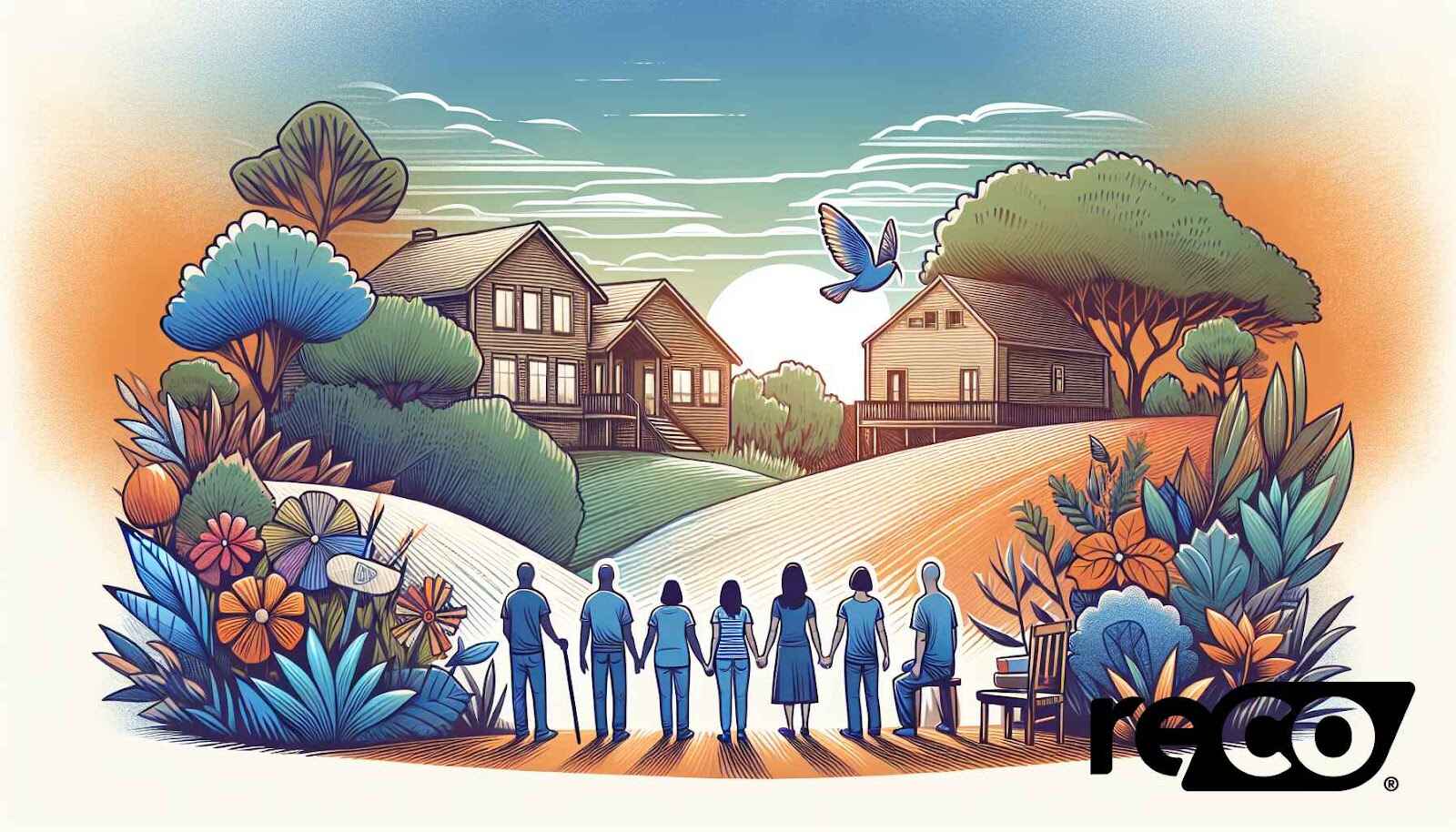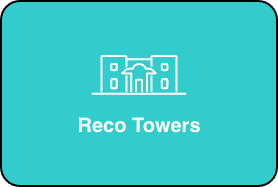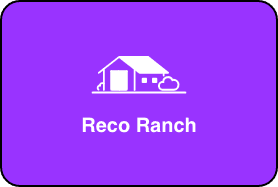Unlocking Stability with Sober Housing Programs


Embarking on a Sober Journey
The importance of a stable environment in recovery
The journey to recovery from substance use disorders is a profound transformation that demands not only internal resolve but also external support and a conducive environment. A stable environment plays a pivotal role in this transformative process, serving as both a sanctuary and a space conducive to healing. For individuals embarking on this path, the turbulence experienced during addiction is replaced with the calm and steadiness essential for healing in a stable environment. This foundation is not just about the physical space but also about the emotional and social stability it fosters, enabling individuals to focus on their recovery without the distractions and triggers of their previous lifestyle.
How sober living programs complement the recovery journey
Sober living programs offer a structured yet flexible framework that complements the recovery journey in a multifaceted manner. By bridging the gap between intensive inpatient treatment and a return to everyday life, these programs provide a gradual reintegration process that supports individuals in adapting to a sober life. The unique combination of autonomy with accountability found in sober living arrangements encourages residents to practice newly learned sobriety skills in a real-world setting while still under the oversight of supportive staff and peers. Moreover, these programs often integrate other elements of recovery, such as 12-step meetings and outpatient services, creating a holistic approach that addresses the complexities of addiction.
Understanding the role of sober living in long-term recovery
Sober living homes are more than just transitional living spaces, they are vital stepping stones in the continuum of care that contribute significantly to the likelihood of long-term recovery. By participating in a sober living program, individuals immerse themselves in a recovery-oriented environment that reinforces the principles and practices essential for sustained sobriety. The peer support found in these settings, combined with structured routines and accountability measures, greatly reduces the risk of relapse. Furthermore, sober living homes offer a unique opportunity to build a recovery network, connect with mentors, and access ongoing support, all of which are critical components in navigating the lifelong journey of recovery. Through fostering a stable and supportive environment, sober living homes play a critical role in laying the foundation for a healthy, sober future.
The Foundation of Sober Living
Defining Sober Housing Programs
Sober housing programs, often termed sober living communities or residences, provide a structured environment conducive to individuals recovering from substance use disorders. These programs are designed to offer a stable living situation that emphasizes sobriety, personal responsibility, and community support. Unlike temporary shelters or informal arrangements, sober housing programs operate under a set of rules and norms aimed at fostering a lifestyle free from alcohol and drugs. This environment enables residents to develop coping mechanisms, rebuild their lives, and integrate into society with a renewed sense of purpose. The emphasis on mutual support and accountability within these residences plays a crucial role in the stability they offer, making them a valuable aspect of the recovery journey.
The Difference Between Sober Living Homes, Halfway Houses, and Transitional Housing Programs
Though often used interchangeably, sober living homes, halfway houses, and transitional housing programs have distinct features that cater to different stages and needs in recovery. Sober living homes primarily focus on providing a drug and alcohol-free environment for individuals actively working on their sobriety. These residences usually don’t have a limit on how long a person can stay, making them ideal for those seeking long-term support.
Halfway houses, on the other hand, are often associated with the criminal justice system and may require residents to have undergone or be undergoing a treatment program. They serve as a ‘halfway’ point for individuals transitioning back into society, with more stringent rules and a defined stay duration.
Transitional housing programs offer temporary accommodation to support individuals in gaining the skills and resources needed for independent living. These programs often include services like job training and counseling, focusing on a broader scope of transition beyond just sobriety.
Understanding these distinctions is paramount for individuals seeking the right support system for their recovery journey. Each type of residence caters to different recovery phases and individual needs, underscoring the importance of evaluating one’s situation before deciding where to commit.
The Unique Approach of Sober Living Residences Like RECO Institute
At the heart of Delray Beach, Florida, RECO Institute exemplifies the unique approach of specialized sober living residences, tailored to address the nuanced needs of those embarking on a recovery journey. Unlike generic halfway houses or transitional programs, RECO Institute integrates a comprehensive addiction treatment program with its sober living residences, offering a seamless continuum of care. This model ensures that residents not only live in a supportive and sober environment but also have access to individualized treatment plans, outpatient services, and group therapies.
The emphasis at RECO Institute is on creating a community where residents feel understood, supported, and motivated by their peers. This is achieved through structured activities, group sessions, and a strong focus on the principles of mutual aid. The Institute’s approach extends beyond mere abstinence, aiming to equip residents with the skills, confidence, and resources necessary for a fulfilling sober life. Through combining high-quality living accommodations with an all-encompassing recovery program, RECO Institute stands as a beacon of hope and stability for those looking to rebuild their lives free from substance dependency.
A Closer Look at Sober Living in Delray Beach


Why Delray Beach is a hub for sober living and recovery
Delray Beach, Florida, has emerged as a nationally recognized hub for sober living and recovery, attributing its status to the robust recovery community and an abundance of resources dedicated to supporting individuals in their journey toward sobriety. The city’s warm climate, picturesque landscapes, and tranquil ocean vistas provide a serene backdrop that is conducive to healing and personal growth. More importantly, Delray Beach’s commitment to fostering a supportive community for recovery is evident in its numerous sober living homes, treatment facilities, and recovery-oriented events. This unique combination of environmental and community support factors makes Delray Beach an ideal location for individuals seeking a fresh start and a path to recovery. The sense of belonging and community, coupled with high-quality sober living programs, makes it a beacon of hope for many.
Exploring the supportive environment of sober homes in Florida
Sober homes in Florida, particularly in Delray Beach, offer more than just a place to stay, they provide a nurturing environment that encourages growth, self-discovery, and mutual support. These homes are strategically located to afford residents access to numerous sober activities, support group meetings, and employment opportunities, which are essential for building a new life in recovery. The sober homes are designed to foster a feeling of safety, belonging, and camaraderie, which are pivotal during the early stages of recovery. Staffed by individuals who often have personal experiences with recovery, these homes offer a level of empathy, understanding, and guidance that is invaluable. An emphasis on community involvement and service further strengthens residents’ commitment to sobriety, while also integrating them into the broader recovery community.
RECO Institute’s contribution to the recovery community in Delray Beach
RECO Institute has solidified its role as a cornerstone of the recovery community in Delray Beach through its innovative approach to sober living and comprehensive addiction treatment programs. By blending high-quality living accommodations with tailored treatment and supportive services, RECO Institute creates a seamless continuum of care that addresses the multifaceted needs of individuals in recovery. The organization’s contribution extends beyond the walls of its residences, it actively participates in and contributes to the local recovery community through outreach programs, public education, and collaboration with other organizations. RECO Institute’s unique alumni program further exemplifies its commitment to long-term recovery, offering ongoing support, resources, and engagement opportunities for graduates. Through these efforts, RECO Institute not only supports individuals in their personal recovery journeys but also enriches the collective spirit and resilience of the recovery community in Delray Beach.
Components of Effective Sober Housing Programs
The role of a house manager
In the scaffolding of sober living programs, the presence of a dedicated house manager is indispensable. This individual plays a multifaceted role, acting as a mentor, administrator, and mediator all in one. A house manager’s responsibilities extend beyond simple oversight of the residence, they are tasked with ensuring that house rules are adhered to, fostering a supportive environment, and providing guidance and support to residents as they navigate the challenges of early recovery. This role is pivotal in maintaining the stability and security of the sober living house, creating a structured environment where residents can focus on their personal growth and sobriety. The effective management of the house contributes significantly to the overall success of the program, underlining the importance of a house manager in the recovery journey.
The significance of house meetings and group dynamics
The fabric of sober living is stitched together with the threads of community and connection, making house meetings and the resultant group dynamics integral to the recovery process. These gatherings serve as a communal touchstone, offering residents a platform to share successes, express concerns, and discuss challenges. By fostering open communication, house meetings help in building trust among residents, creating a cohesive, supportive atmosphere that is critical for recovery. The significance of these meetings extends beyond shared experiences, enabling the formation of bonds that can carry individuals through the ups and downs of recovery. The dynamics of the group, carefully nurtured through these interactions, play a crucial role in reinforcing a sense of belonging and mutual support, an essential component of the social dimension of healing.
Incorporating 12-step meetings and outpatient programs
The integration of 12-step meetings and outpatient programs into sober living residences represents a holistic approach to recovery, addressing both the social and clinical aspects of substance use disorders. These components are vital in providing a structured yet flexible framework that aids residents in building a resilient foundation for sobriety. Engaging in 12-step meetings, residents are exposed to a larger recovery community, gaining insights and inspiration from peers who have traversed similar paths. This external support complements the internal community within the sober living house, broadening the scope of recovery to include a network of diverse experiences and wisdom.
Outpatient programs, on the other hand, ensure that residents continue to receive professional guidance and therapy while transitioning to more independent living. These programs can include individual counseling, group therapy, and tailored treatments that cater to the specific needs of the individual. The seamless combination of these clinical interventions with the supportive environment of the sober living residence enriches the recovery experience, offering a comprehensive approach that supports long-term sobriety and personal growth. This integration signifies a recognition of the complexity of recovery, addressing both the immediate and ongoing needs of individuals on their journey to a sober life.
Peer Support: The Backbone of Recovery
The impact of peer support in sober living homes
The journey to recovery is often marked by challenges that require more than just individual resolve, they necessitate a supportive community that understands the intricacies of addiction. Sober living homes, with their emphasis on collective healing, introduce a powerful element into the recovery process: peer support. This form of support is not just about sharing experiences, it’s about creating a space where individuals feel seen, heard, and understood by those who have walked similar paths. The impact of peer support in these settings is profound, offering both emotional and practical guidance. Peers in sober living homes act as mirrors, reflecting both the struggles and victories of recovery, and provide a sense of companionship that mitigates the loneliness often associated with this journey. Through shared activities, counseling sessions, and daily interactions, residents learn from each other, gaining insights and strategies that bolster their journey towards sobriety. The beauty of peer support lies in its reciprocity-a symbiotic relationship where helping others is as beneficial as being helped, reinforcing a cycle of positive reinforcement and accountability.
Building a sober network through group homes and social activities
An essential aspect of sustaining recovery and ensuring long-term sobriety is the construction of a sober network-a constellation of individuals committed to a substance-free lifestyle. Sober living homes and group homes serve as fertile grounds for building these networks, creating environments where residents not only share a living space but also aspirations for a healthier future. The emphasis on communal living encourages residents to engage in social activities, both within the residence and in the broader community, facilitating connections that extend beyond the sober living arrangement. These activities, ranging from group outings to volunteer work, provide opportunities for individuals to bond over shared interests and commit to collective sobriety goals. The networks formed within these contexts are invaluable, offering emotional support, accountability, and companionship. They serve as a buffer against relapse, a source of encouragement during challenging times, and a reminder of the joys that a sober life can offer. By actively participating in a sober community, individuals fortify their recovery, making it resilient in the face of the vicissitudes of life.
Alumni programs: Continuing support beyond initial recovery
Transitioning from the structured environment of a sober living home to more independent living can be daunting for individuals in recovery. Recognizing this, many sober living facilities, including RECO Institute, offer alumni programs designed to provide ongoing support and engagement for graduates. These programs are a testament to the enduring nature of the recovery journey, acknowledging that the need for support doesn’t end upon leaving the sober living environment. Alumni programs offer a range of services and activities, such as regular check-ins, social events, mentorship opportunities, and access to resources, aimed at reinforcing the principles and habits cultivated during the initial recovery phase. They serve as a lifeline, ensuring that alumni remain connected to the recovery community and continue to grow in their sobriety. The presence of these programs underscores the commitment of sober living residences to the lifelong well-being of their residents, offering a continuum of care that extends far beyond the confines of the program. Through active engagement in alumni programs, individuals can navigate the complexities of post-recovery life with confidence, knowing that a supportive community is always within reach.
Navigating Treatment Options: From Residential to Outpatient


The Continuum of Care in Addiction Treatment
The concept of the continuum of care in addiction treatment represents a comprehensive approach that addresses various stages of recovery, from the initial detoxification to long-term aftercare and every step in between. This model is designed to provide individuals with a seamless transition through different levels of care, ensuring that the necessary support is available at every stage of their recovery journey. The continuum begins with more intensive treatments, such as inpatient or residential programs, where individuals receive round-the-clock care in a controlled environment. As progress is made, the intensity of care decreases, transitioning through partial hospitalization, intensive outpatient programs, and standard outpatient care. Each of these steps is crucial for addressing different needs and challenges that arise during recovery, allowing for a tailored approach that maximizes the chances of long-term sobriety.
How Sober Living Residences Fit into Treatment Plans
Sober living residences play a pivotal role within the continuum of care, acting as a bridge between the more controlled environment of residential treatment and the relatively unstructured reality of everyday life. For many recovering individuals, the transition from an intensive treatment setting to total independence can be daunting and fraught with potential triggers. Sober living homes offer an intermediary step where residents can practice the skills they’ve learned in treatment, such as coping mechanisms and relapse prevention strategies, in a real-life setting but with a safety net. By incorporating sober living into treatment plans, healthcare professionals provide their clients with an opportunity to build confidence in their sobriety within a supportive and structured environment. The emphasis on community and peer support found in these residences further enhances the recovery experience, reinforcing the lessons learned during treatment and solidifying a commitment to sobriety.
Transitioning from Residential Treatment to Sober Living
The process of transitioning from a residential treatment program to a sober living residence is a critical phase in the recovery journey, marked by both opportunities for growth and potential challenges. For many individuals, leaving the high level of care and support found in residential treatment can invoke feelings of anxiety and uncertainty. However, sober living residences offer a unique combination of independence and support, allowing residents to gradually acclimate to life outside of treatment while still benefiting from a structured, substance-free environment. Engagement in community living, accountability, and continued access to therapeutic resources are key aspects that support this transition. Residents learn to navigate daily responsibilities, relationships, and stressors under the guidance of house managers and with the support of their peers, laying the groundwork for a successful reintegration into society. This transition phase is instrumental in reinforcing the coping skills and healthy habits needed for long-term recovery, offering individuals a path towards independence that is both supportive and empowering.
The Role of Structure and Accountability
Daily routines in sober living houses
In the path to recovery, establishing and maintaining daily routines are pivotal in fostering a sense of stability and progress. Sober living houses emphasize the importance of such routines as a foundational aspect of the recovery process. Each day is structured to include individual and group therapy sessions, job training or employment, physical activities, and communal gatherings. This regularity and predictability in daily life help mitigate the chaos that often characterizes addiction, providing residents with a scaffold upon which to rebuild their lives. Moreover, these routines instill discipline and responsibility, attributes that are crucial for sustaining sobriety. From the moment residents wake up to the time they retire for the night, every activity is designed to reinforce their commitment to recovery and their journey towards a self-reliant, sober life.
Understanding and adhering to house rules for personal growth
Adherence to house rules in sober living environments is not merely about maintaining order, it is a practice in personal growth and development. These rules, which often encompass curfews, participation in chores, attendance at meetings, and abstinence from substances, serve as a framework within which residents learn to navigate their new sober lives. By following these guidelines, individuals in recovery not only demonstrate respect for the collective wellbeing of the community but also cultivate self-respect and self-discipline-qualities that are invaluable in their journey towards long-term recovery. The process of following these rules can sometimes be challenging, but it is through these challenges that residents learn about accountability, responsibility, and the value of meaningful contributions to a community. This adherence fosters a culture of mutual respect and understanding, which is indispensable in a supportive recovery environment.
The importance of accountability in the recovery journey
Accountability stands at the core of the recovery journey, acting as the glue that holds together the structure of sober living programs. In these environments, accountability extends beyond personal responsibility to include a communal aspect, where residents hold each other to their commitments of sobriety and personal growth. The presence of a house manager and the implementation of regular house meetings and check-ins ensures that accountability is woven into the fabric of daily life. This ongoing process of self-reflection and responsibility towards one’s actions and towards the community is vital in reinforcing the lessons of recovery. It encourages individuals to confront challenges head-on, learn from setbacks, and celebrate accomplishments. Through this lens, the role of accountability in sober living residences becomes clear-it is about nurturing an environment where individuals are empowered to take charge of their recovery, knowing that they do so within a supportive and understanding recovery community. This balance of self-reliance and communal support is crucial in navigating the complexities of addiction recovery and establishing a foundation for enduring sobriety.
Addressing Alcohol and Substance Use Disorders
Customized Treatments Within Sober Living Programs
Sober living programs, like those offered by RECO Institute, recognize that each individual’s journey through recovery is unique. These programs provide an integrative approach, tailoring treatments to address the specific needs and challenges of those battling alcohol and substance use disorders. Customized treatment plans often encompass a combination of therapy sessions, including individual counseling and group therapy, along with holistic approaches like mindfulness and wellness activities. This personalized approach ensures that residents receive the most effective forms of support, addressing not only their addiction but also any underlying issues contributing to it. By focusing on the individual, sober living programs facilitate a more profound healing process, preparing residents for a successful transition to a sober lifestyle.
Long-term Strategies for Dealing with Cravings and Triggers
One of the most challenging aspects of recovery is managing cravings and triggers that can lead to relapse. Sober living residences equip individuals with long-term strategies to navigate these challenges effectively. Through educational workshops, therapy sessions, and peer support groups, residents learn to identify their triggers and develop coping mechanisms that work for them. Skills such as stress management, emotional regulation, and healthy communication are emphasized, providing a toolkit that residents can rely on well beyond their stay in the program. Additionally, the supportive environment of sober living homes offers a safe space for individuals to practice these strategies in real-world scenarios, reinforcing their learning and boosting their confidence in maintaining sobriety.
The Benefits of a Sober Living Environment for Alcohol Addiction Recovery
A sober living environment plays a crucial role in the recovery from alcohol addiction, offering numerous benefits that support long-term sobriety. Firstly, it provides a safe and stable environment free from the temptations and triggers often present in an individual’s usual living situation. This stability is foundational in the early stages of recovery, allowing residents to focus solely on their journey without external pressures. Moreover, the community aspect of sober living homes fosters a sense of belonging and support, which is vital for emotional well-being. Residents benefit from peer support, sharing experiences and coping strategies, and creating lasting bonds that contribute to their resilience. The structure and accountability inherent in sober living programs also encourage personal growth and responsibility, key components of a successful transition to independent sober living. Together, these benefits create a conducive setting for recovery, significantly enhancing the chances of successful long-term sobriety from alcohol addiction.
Life Beyond Sober Living: Preparing for Independence
Developing Life Skills in Sober Homes for Successful Independence
Transitioning from sober living environments into fully independent lifestyles necessitates the development of comprehensive life skills. These programs are meticulously designed to include various activities and workshops that focus on practical living skills, budgeting, job readiness, and conflict resolution. By engaging in such activities, residents learn to navigate the complexities of everyday life, which is a critical component of lasting sobriety. These skills empower individuals to manage their time effectively, maintain employment, and build healthy relationships-key indicators of successful independence. Furthermore, the structured environment of sober homes offers a unique opportunity to practice these skills in a supportive setting, smooth the transition to independence, and mitigate the risk of relapse.
Setting Goals for a Sober Life Outside the Sober Living House
Goal-setting plays a pivotal role in shaping a successful future post-sober living. Residents are encouraged to set both short-term and long-term goals that align with their values and aspirations for a sober life. These goals often encompass career aspirations, educational objectives, personal development targets, and relationship rebuilding efforts. Through regular goal-setting workshops and individual counseling, sober living programs help individuals chart a course for their futures, instilling hope and direction. Achieving these goals often requires perseverance and resilience, qualities that are cultivated within the supportive confines of sober living homes. By envisioning a life filled with purpose and achievement, individuals are better positioned to face the challenges of independence with confidence and determination.
The Role of the Recovery Community in Maintaining Long-Term Recovery
The journey towards long-term recovery does not end with the transition out of a sober living house, it is a lifelong endeavor that benefits greatly from the continuous support of the recovery community. Engaging with the recovery community through ongoing participation in support groups, sober living in Delray Beach activities, and alumni events is crucial for maintaining sobriety and finding encouragement during difficult times. These connections provide a safety net, offering guidance and wisdom from those who have navigated similar paths. Additionally, many sober living programs, including RECO Institute, place a strong emphasis on their alumni programs, recognizing the importance of seamless, continued support as individuals embrace their newfound independence. This enduring bond with the recovery community not only enriches the individual’s life but also amplifies their capacity to contribute positively to the lives of others in recovery, fostering a cycle of mutual aid and empowerment essential for long-term recovery success.
How to Choose the Right Sober Living Residence
Key factors to consider when selecting a sober housing program
When embarking on the journey towards sobriety, selecting the right sober living residence is crucial to ensuring a supportive and conducive environment for recovery. Several factors come into play when making this decision, such as the location of the residence, its rules and structure, the types of programs available, and the level of support provided. The location should offer a serene atmosphere that promotes healing, away from potential triggers and in proximity to necessary amenities and support services. It’s also important to evaluate the residence’s rules and structure, as these create the framework for a disciplined and stable lifestyle conducive to recovery. The availability of tailored programs that cater to individual needs is another pivotal factor, ensuring residents receive the appropriate care and support. Lastly, the level of peer support and the presence of a compassionate and experienced house manager can significantly impact one’s recovery journey. These elements combined lay the foundation for a supportive sober living environment that fosters personal growth and long-term recovery.
The importance of a supportive environment and comprehensive treatment options
A supportive environment, coupled with comprehensive treatment options, is fundamental for individuals in recovery from substance use disorders. A nurturing and understanding community within the sober living residence can significantly enhance the recovery experience, providing residents with the emotional support and camaraderie needed during this vulnerable time. This environment encourages sharing, mutual support, and the formation of meaningful connections, which are vital components of the recovery process. Furthermore, access to a variety of treatment options, including therapy sessions, group meetings, and recreational activities, allows residents to explore different avenues of healing. Comprehensive treatment options cater to the multifaceted nature of addiction, addressing not only physical dependencies but also the emotional and psychological aspects of recovery. Together, a supportive environment and extensive treatment offerings empower individuals to embark on a journey of recovery with confidence, surrounded by people who understand their struggles and are committed to their success.
Questions to ask a sober living house manager
Selecting a sober living residence requires careful consideration and due diligence to ensure it aligns with one’s needs and recovery goals. One effective way to gather insights is by asking the house manager specific questions, including:
- What is the structure of a typical day in the residence? Understanding the daily routine can help you gauge the level of structure and whether it suits your recovery process.
- How does the residence handle relapses? Knowing the policies regarding relapse can provide a sense of security and clarity on how challenges are addressed within the community.
- Can you describe the community atmosphere? Getting a feel for the interpersonal dynamics and level of peer support offered is crucial.
- What types of programs and treatments are available to residents? Insight into the therapeutic options and support services can indicate the comprehensiveness of care provided.
- What are the rules and expectations for residents? Clarifying house rules and resident responsibilities can help assess if the environment is conducive to your personal recovery journey.
- How do you support residents in transitioning to independent living? This question is key to understanding the long-term support and preparation for life after the sober living residence.
Asking these questions can provide valuable information and ensure that the sober living residence you choose is well-equipped to support you on the path to recovery. For a deeper understanding of how a sober housing program can effectively support residents, including the significance of a stable environment and comprehensive treatment options, consider exploring this insightful resource.
Journeying Towards a Brighter Future
Success stories from the RECO Institute
The path to sobriety is a testament to resilience, determination, and the transformative power of support. At RECO Institute, countless individuals have turned their lives around, finding hope and a renewed sense of purpose through structured sober living programs. These success stories serve as powerful reminders of what is possible when individuals in recovery are given the tools and support needed to thrive. Within the walls of RECO’s sober living homes in Delray Beach, residents not only work on their sobriety but also on rebuilding their lives, forging meaningful relationships, and setting the foundation for a brighter future. Each story of recovery adds to the rich tapestry of the recovery community, offering inspiration and proof that long-term sobriety is achievable.
The lifelong journey of recovery
Recovery from substance use disorders is not a destination but a lifelong journey. Recognizing this, RECO Institute emphasizes the importance of ongoing support and personal growth beyond the initial stages of recovery. The journey does not end upon transitioning out of a sober living home, it merely evolves, presenting new opportunities and challenges along the way. Engaging with the recovery community, participating in alumni programs, and continuing personal development are essential strategies for maintaining long-term recovery. This continuous commitment to sobriety and wellbeing underscores the resiliency of individuals in recovery and the enduring nature of the support found within the recovery community.
Creating a personal plan for long-term recovery and sobriety
A cornerstone of successful long-term recovery is the creation of a personal plan that outlines goals, strategies, and resources for maintaining sobriety. At RECO Institute, residents are encouraged to develop comprehensive plans that address various aspects of their lives, including career aspirations, personal relationships, physical health, and ongoing participation in the recovery community. This plan serves as a roadmap, guiding individuals as they navigate the complexities of sober living outside the supportive environment of a sober living home. By setting realistic goals, identifying potential challenges, and establishing a network of support, individuals are better equipped to embrace their sober life with confidence and optimism. The journey towards long-term recovery and sobriety is deeply personal, yet it is bolstered by the collective wisdom and support of the recovery community, ensuring that no one has to walk this path alone.















